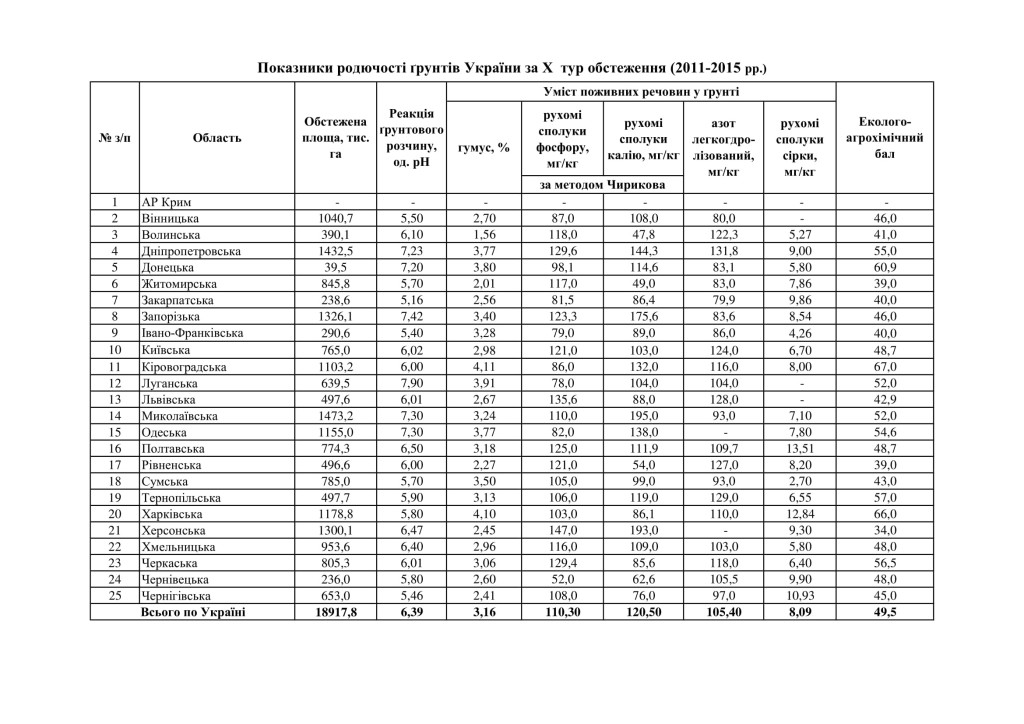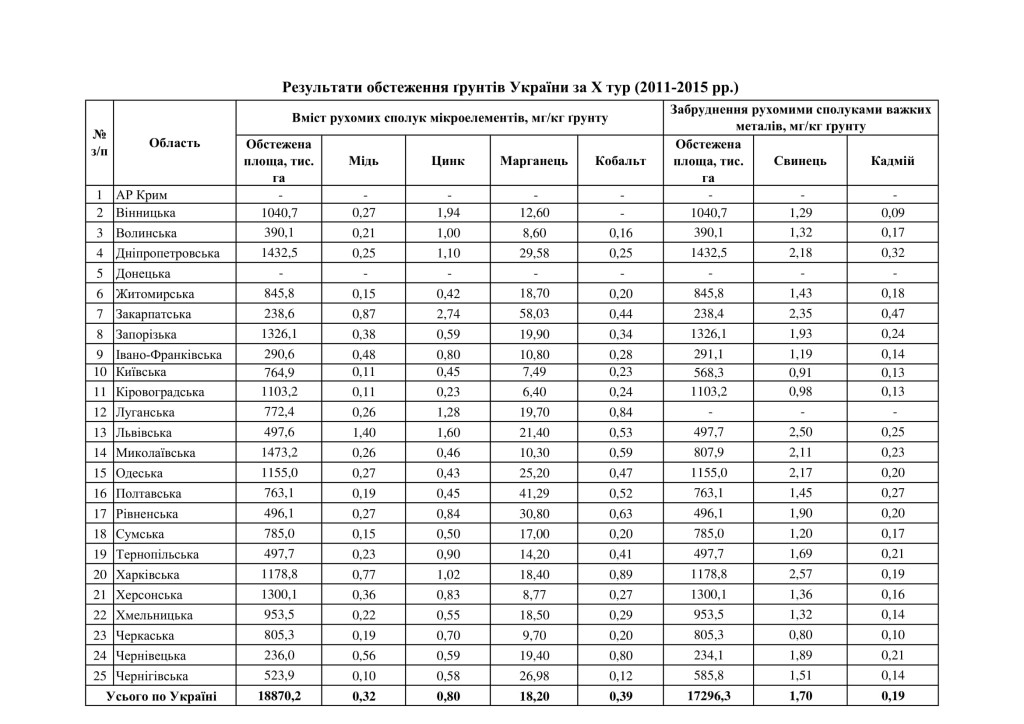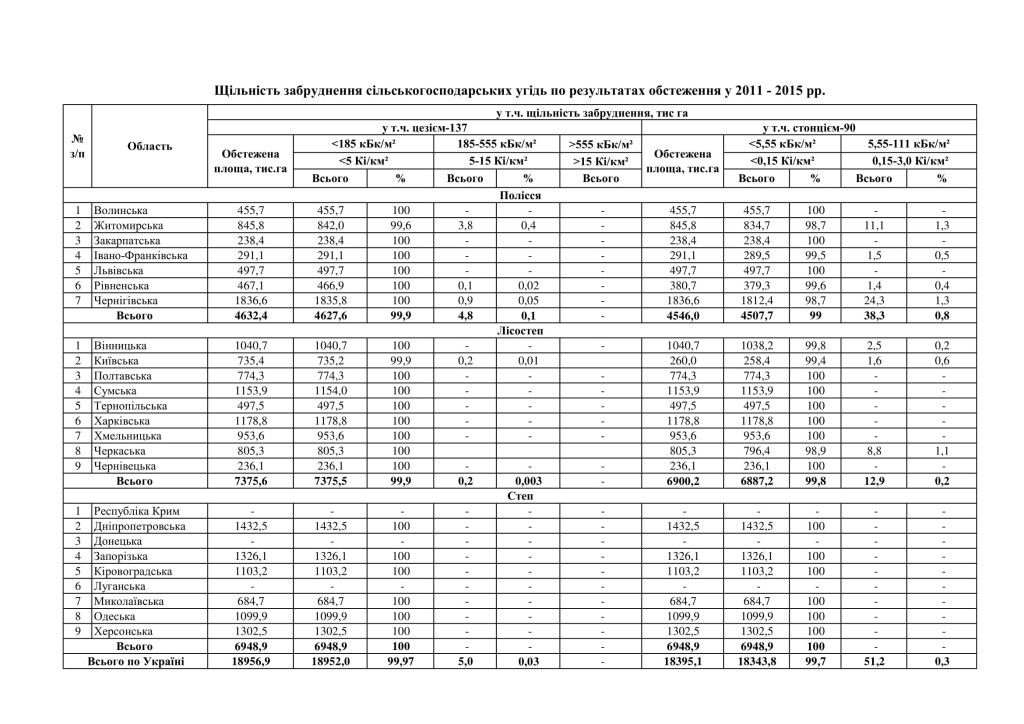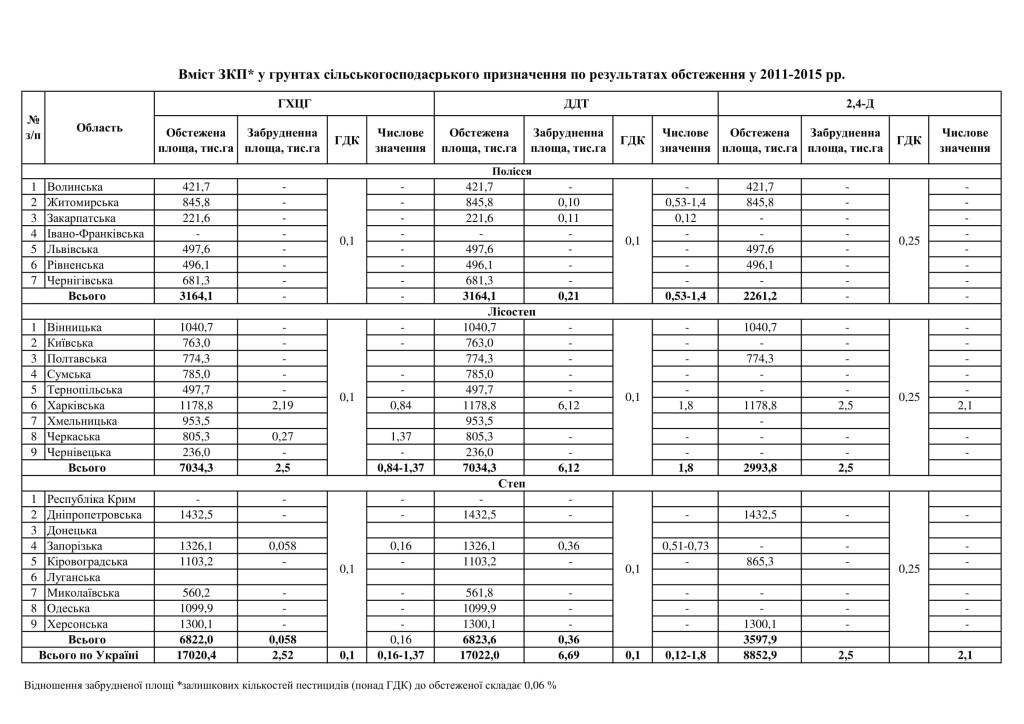Agrochemistry
1. Agrochemical survey of agricultural land
High agricultural productivity is possible only with comprehensive monitoring of the state of soils and prevention of their degradation. The implementation of this task is ensured by constant scientific research on the agrochemical survey of agricultural land, which is based on monitoring the state of soil cover and developing proposals for effective, environmentally safe application of agrochemical measures.
 Agrochemical survey has been conducted in Ukraine for more than 50 years, with a frequency of once every five years. Ten full rounds of such surveys have been conducted and work continues.
Agrochemical survey has been conducted in Ukraine for more than 50 years, with a frequency of once every five years. Ten full rounds of such surveys have been conducted and work continues.
These scientific studies are carried out by the state institution “Institute of soil protection of Ukraine” and its branches in all regions of Ukraine in accordance with the laws of Ukraine “On land protection”, “On state control over the use and protection of land”, “On the basic principles of State Agrarian Policy for the period up to 2015”
 The system employs 765 specialists and workers, and scientific research is carried out in 24 certified laboratories, of which 6 are accredited according to ISO.
The system employs 765 specialists and workers, and scientific research is carried out in 24 certified laboratories, of which 6 are accredited according to ISO.
During the last, tenth, round (2011-2015), about 20 million hectares of agricultural land were surveyed. More than 1.9 million people were selected from the surveyed areas. samples and conducted almost 10 million. complex laboratory tests of the soil to determine the content of more than 20 nutrients and pollutants in it.
 Materials of the agrochemical survey of agricultural land serve as the basis for drawing up and providing producers with agrochemical passports for each surveyed field (land plot). During the specified period, 360.8 thousand units were issued to land users and landowners agrochemical data sheets with recommendations for improving the efficiency of using and preserving soil cover.
Materials of the agrochemical survey of agricultural land serve as the basis for drawing up and providing producers with agrochemical passports for each surveyed field (land plot). During the specified period, 360.8 thousand units were issued to land users and landowners agrochemical data sheets with recommendations for improving the efficiency of using and preserving soil cover.
The use of materials for agrochemical certification of agricultural land makes it possible to:
monitor the state of soils and develop individual recommendations for agricultural producers on their rational and effective use;
develop and implement scientifically based crop rotations and soil protection measures;
calculate the optimal application doses of organic and mineral fertilizers and chemical meliorants for the projected yield, which ensures the maximum level of profitability and minimal load on the environment;
monitor the levels of soil contamination with radionuclides, heavy metals and pesticide residues and develop proposals for attracting these lands to economic circulation;
identify and create raw material zones for the production of children’s and dietary food products;
fill the subjects of the state land cadastre with data on the qualitative state of soils, which makes it possible to determine their real value;
introduce “precision farming” systems and other measures.
The agrochemical passport is a mandatory document in the process of regulating land relations, in particular when:
monitoring the state of soil fertility;
change of landowner or land user;
land lease transfers;
preparation of land management projects that provide ecological and economic justification for crop rotation;
introduction of mechanisms for economic incentives measures to increase soil fertility;
certification of agricultural land (soils) and assignment of the certified land plot to the quality category.













